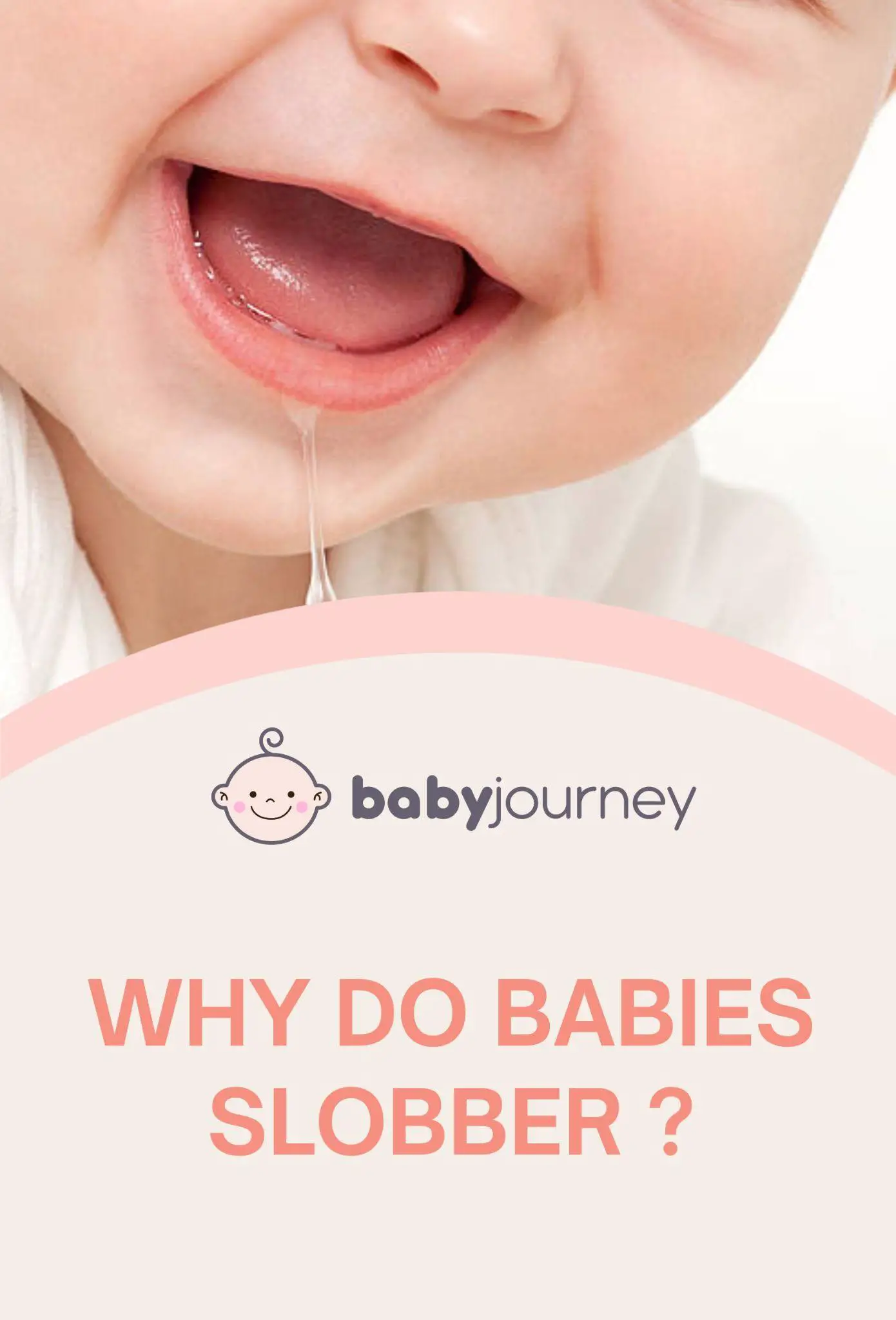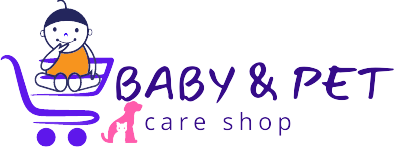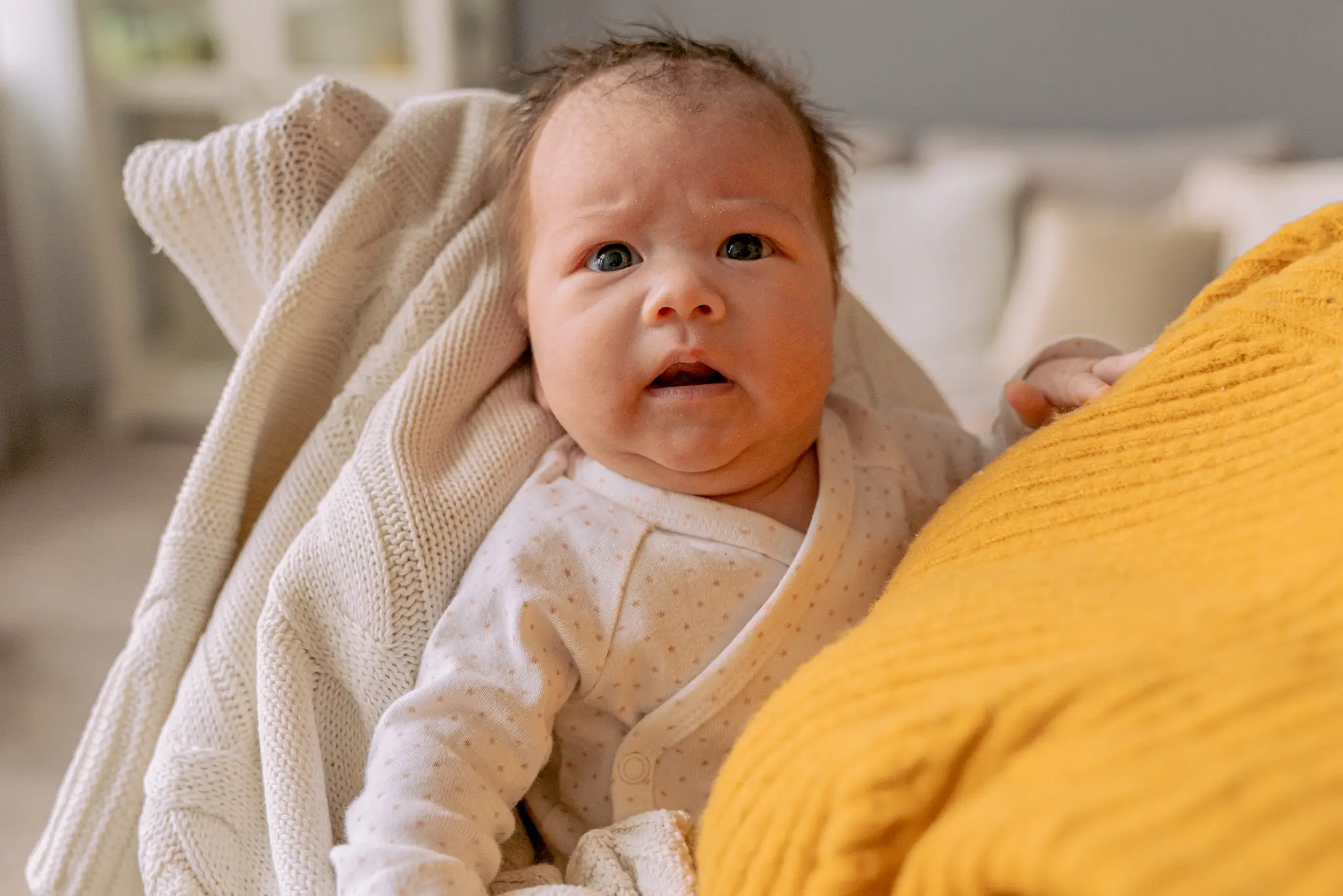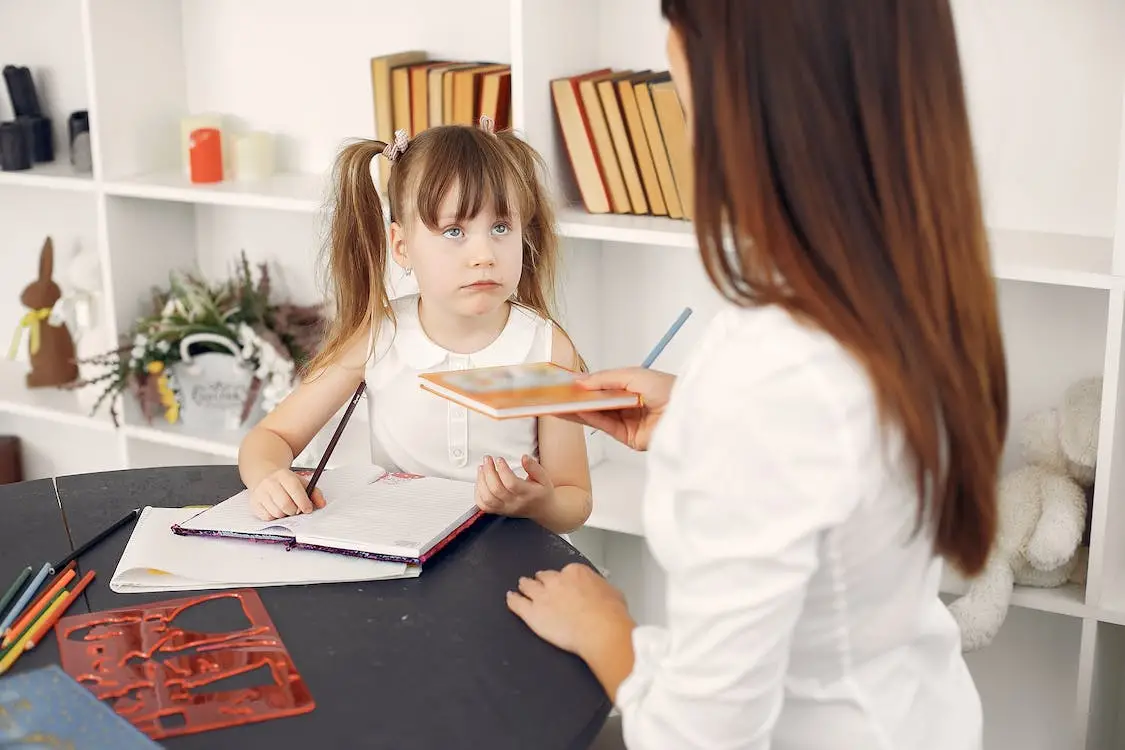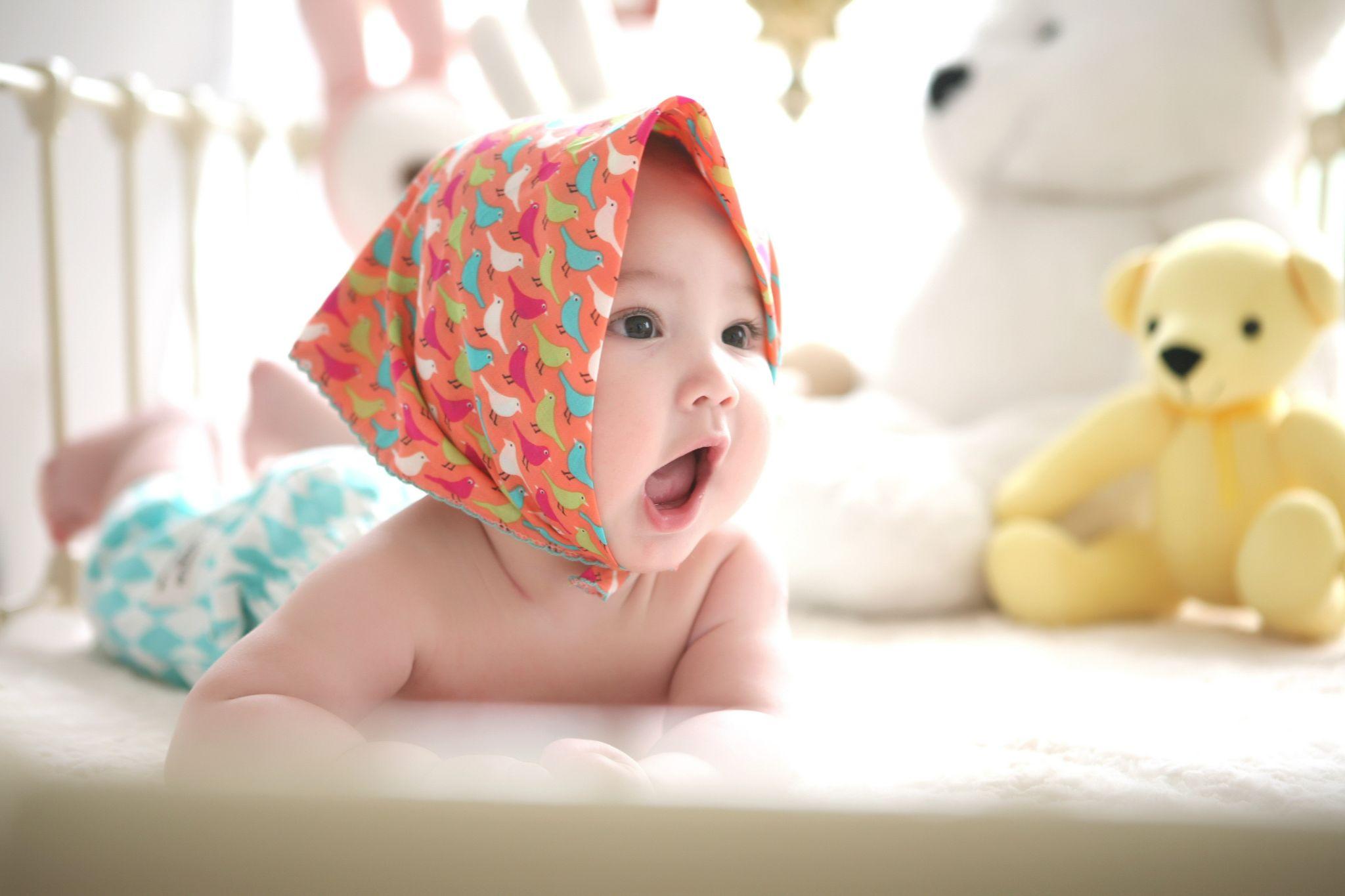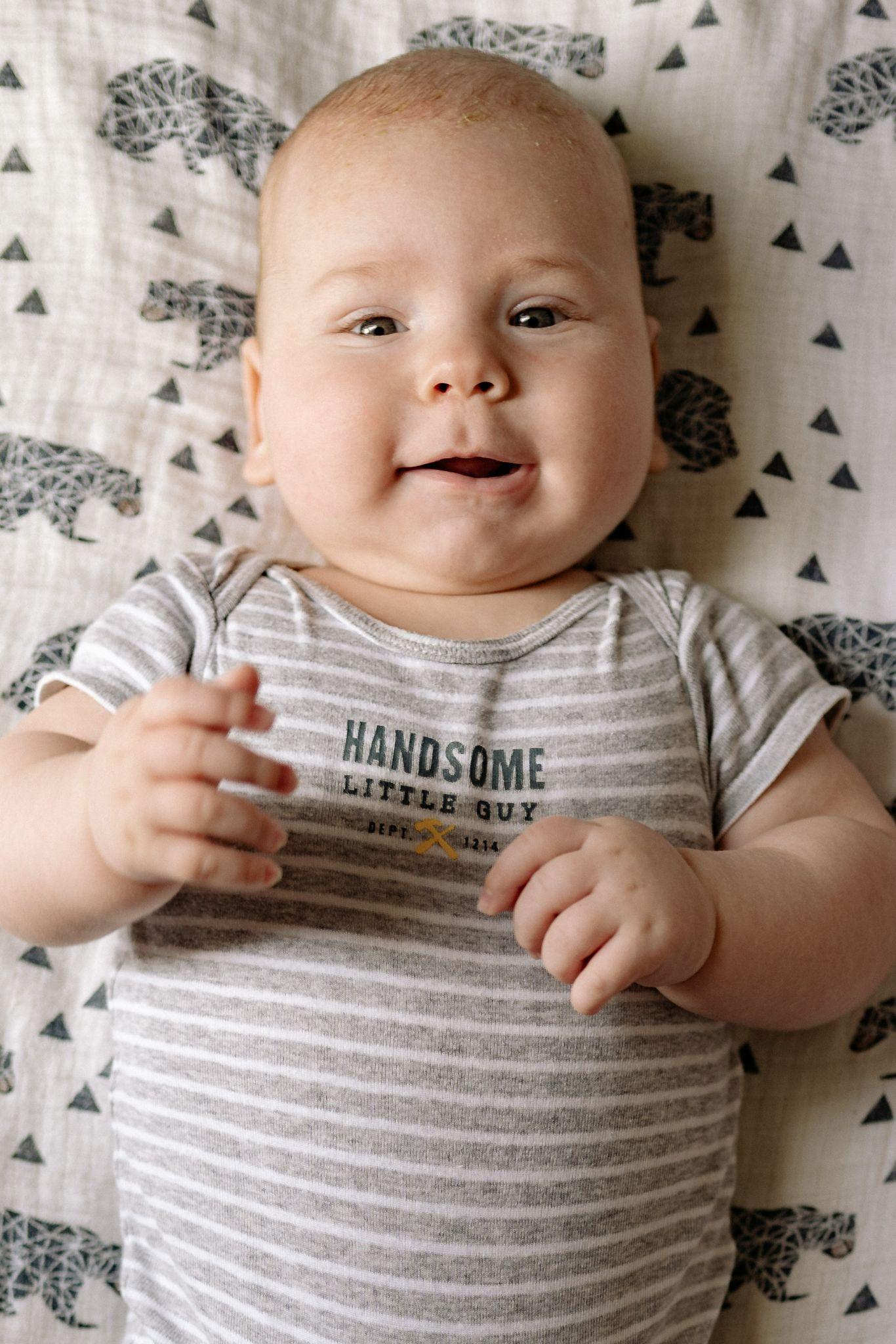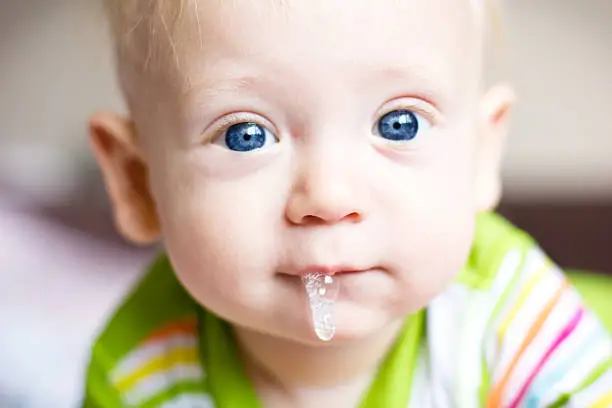
Infants drooling or slobbering is a standard phenomenon that almost all dad and mom should cope with. It’s a pure prevalence that’s a part of a child’s growth course of. Infants begin drooling round 3-4 months of age, and it may proceed till they’re about 2-3 years outdated. Whereas it may be a nuisance for fogeys, it’s a signal that their child is rising and growing as anticipated.
There are a number of explanation why infants drool. One of the crucial frequent causes is teething. When a child begins teething, their gums turn into sore and swollen, which may trigger them to drool excessively. Infants additionally drool when they’re hungry or after they see meals. As they become old, they could drool when they’re excited or when they’re concentrating on one thing. In some instances, extreme saliva manufacturing could also be an indication of an underlying medical situation, comparable to acid reflux disorder or allergic reactions. Nonetheless, most often, it’s nothing to fret about and is only a regular a part of a child’s growth.
Dad and mom can take steps to handle their child’s drooling, comparable to utilizing bibs to maintain their garments dry and wiping their face frequently to forestall pores and skin irritation. It’s also necessary to make sure that their child’s chin and neck are stored clear and dry to forestall rashes and infections. Whereas it may be irritating for fogeys, drooling is a pure a part of a child’s growth, and it’ll finally move.
What’s Child Slobber?
Child slobber, also referred to as drooling, is a standard prevalence in infants and younger youngsters. It’s the unintentional launch of an excessive amount of saliva from the mouth, which may result in wetness across the mouth and chin. Infants begin drooling as early as three months of age, though some could begin earlier or later.
Drooling is a pure course of that helps infants within the growth of their digestive system. Saliva aids within the breakdown of meals earlier than it reaches the abdomen, and it additionally helps to scrub the mouth and break down micro organism, stopping the newborn from getting sick.
There are a number of explanation why infants slobber, together with teething, developmental milestones, and medical circumstances. Teething is without doubt one of the most typical causes for drooling in infants. Though infants don’t normally get their first tooth till they’re between six and eight months outdated, the teething course of begins a lot earlier. When a tooth first begins to interrupt by means of the gums, there is a rise in saliva manufacturing, and the newborn could drool excessively.
Developmental milestones, comparable to studying to speak or attempting new meals, also can trigger infants to slobber. Infants could drool when they’re excited or interested by one thing, or when they’re attempting to speak with others.
In some instances, medical circumstances comparable to cerebral palsy or Down syndrome also can trigger extreme drooling in infants. If dad and mom discover that their child is drooling excessively, they need to seek the advice of with their pediatrician to rule out any underlying medical circumstances.
Why Do Infants Slobber?
Infants are recognized for his or her lovable chubby cheeks, tiny fingers, and slobbering mouths. However why do infants slobber? Whereas there isn’t a single reply to this query, there are just a few explanation why infants drool.
Drooling at 2 Months
At round 2 months outdated, infants begin to drool as a part of their regular growth. It’s because their salivary glands are beginning to work, and they’re studying methods to swallow saliva. In consequence, chances are you’ll discover that your child is drooling greater than normal and will have to change their bib or clothes extra ceaselessly.
Drooling at 3 Months
By 3 months outdated, infants have gotten extra energetic and interactive with their setting. They begin to discover objects with their mouths and fingers, which may result in elevated drooling. Moreover, at this age, infants are beginning to produce extra saliva as they put together for teething.
Drooling When Teething
One of the crucial frequent explanation why infants slobber is teething. Teething can begin as early as 3 months outdated, and the method can final till the kid is 2-3 years outdated. Because the tooth begin to push by means of the gums, infants could expertise discomfort and ache, which may result in elevated drooling. Moreover, the additional saliva can assist soothe the gums and make the teething course of extra snug.
Whereas drooling is a traditional a part of a child’s growth, extreme drooling is usually a signal of different points. In case your child is drooling excessively or has different signs, comparable to a fever or rash, it’s best to seek the advice of along with your pediatrician.
In abstract, infants slobber for quite a lot of causes, together with regular growth, exploration, and teething. Whereas it might be messy, drooling is a pure a part of a child’s development and growth.
Is Extreme Drooling Regular?
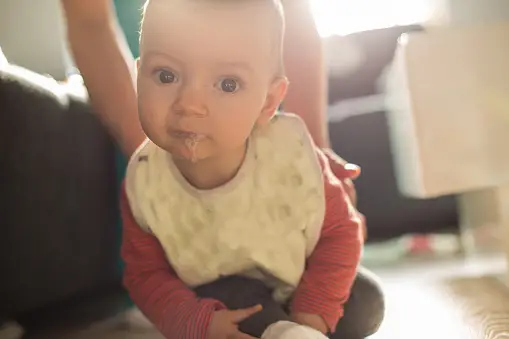
Infants drool quite a bit, and it’s a traditional a part of their growth. Nonetheless, extreme drooling is usually a trigger for concern. Listed here are some issues to bear in mind:
- Drooling is frequent in infants. Infants don’t have full management of their swallowing and the muscle mass of their mouth, which may trigger them to drool. That is particularly obvious at 3 to six months of age, when getting what they want is centered on the mouth.
- Extreme drooling is usually a signal of teething. Though infants don’t have tooth on the age of 6-8 months, their teething course of begins fairly early, which is why they start drooling as early as 3 months of age. In case your child is across the age when tooth normally are available and drooling excessively, it’s doubtless that teething is the explanation behind it.
- Extreme drooling is usually a signal of different points. Whereas extreme drooling is normally nothing to fret about, it may be an indication of different points. For instance, some infants drool excessively as a result of they’ve a blocked tear duct or a sinus an infection. Others could have a neurological situation that impacts their skill to swallow.
- Speak to your pediatrician in the event you’re involved. In case you’re involved about your child’s drooling, speak to your pediatrician. They can assist you identify if there’s an underlying concern that must be addressed.
In abstract, whereas extreme drooling is usually a trigger for concern, it’s normally nothing to fret about. In case you’re involved, speak to your pediatrician to find out if there’s an underlying concern that must be addressed.
Is Extreme Drooling a Signal of Cerebral Palsy?
Extreme drooling is a standard situation in infants and younger youngsters, and it’s normally not a trigger for concern. Nonetheless, extreme drooling may also be an indication of cerebral palsy, a neurological dysfunction that impacts motion and muscle coordination.
Based on the Cleveland Clinic, drooling is regular in newborns and infants as much as two years outdated. The manufacturing of extra saliva normally reaches its peak between three to 6 months of age, and the signs could intensify throughout the teething course of. Nonetheless, if extreme drooling persists past the age of two, it might be an indication of an underlying medical situation, comparable to cerebral palsy.
Cerebral palsy is a bunch of neurological issues that have an effect on motion, muscle tone, and coordination. It’s attributable to injury to the growing mind, and it may happen throughout being pregnant, childbirth, or the primary few years of life. Normally, the indicators of cerebral palsy seem within the first few months of life, however many youngsters usually are not recognized till age 2 or later.
Extreme drooling is without doubt one of the early indicators of cerebral palsy. Kids with cerebral palsy could have issue swallowing, which may result in drooling. They might even have weak or spastic muscle mass within the face, mouth, and throat, which may make it tough to manage saliva. Along with extreme drooling, different indicators of cerebral palsy embrace developmental delays, issues with motion and coordination, and mental disabilities.
If a baby is exhibiting indicators of extreme drooling, you will need to seek the advice of a healthcare supplier. Whereas extreme drooling is normally not a trigger for concern, it may be an indication of an underlying medical situation, comparable to cerebral palsy. A healthcare supplier can carry out a bodily examination and order any needed checks to find out the reason for the extreme drooling and develop an applicable remedy plan.
Is Extreme Drooling a Signal of Bell’s Palsy?
Bell’s palsy is a situation that impacts the facial muscle mass, inflicting one aspect of the face to droop. It’s attributable to the irritation of the facial nerve, which controls the muscle mass of the face. This irritation can result in weak point or paralysis of the facial muscle mass, making it tough to smile, shut the attention on the affected aspect, and even drooling.
Whereas drooling is a standard symptom of Bell’s palsy, it isn’t at all times current. In truth, solely about 10% of individuals with Bell’s palsy expertise extreme drooling. Nonetheless, if a child is drooling excessively, you will need to rule out different potential causes, comparable to teething, earlier than contemplating Bell’s palsy as a possible trigger.
Different signs of Bell’s palsy embrace:
- A sudden weak point or paralysis on one aspect of the face
- Problem smiling or making facial expressions
- Drooping of the eyelid or nook of the mouth
- Lack of the sense of style
- Elevated sensitivity to sound in a single ear
If a child is experiencing any of those signs, you will need to search medical consideration instantly. A physician can carry out a bodily examination and different checks to find out the reason for the signs and develop an applicable remedy plan.
Most often, Bell’s palsy is short-term and can resolve by itself inside just a few weeks to months. Nonetheless, in some instances, remedy could also be needed to assist enhance signs and stop problems. Therapy could embrace medicines, bodily remedy, or surgical procedure, relying on the severity of the situation.
Total, whereas extreme drooling is usually a symptom of Bell’s palsy, it isn’t at all times current. In case you discover your child drooling excessively or having every other signs of Bell’s palsy, you will need to search medical consideration instantly to find out the trigger and develop an applicable remedy plan.
Is Extreme Drooling a Signal of Autism?
Extreme drooling is a standard concern amongst infants and younger youngsters. Whereas it’s typically a traditional a part of their growth, it may also be an indication of an underlying medical situation. One situation that’s typically related to extreme drooling is autism.
Autism is a neurodevelopmental dysfunction that impacts an individual’s skill to speak and work together with others. It’s typically recognized in early childhood, and one of many frequent indicators of autism is extreme drooling. It’s because youngsters with autism could have issue with muscle management, together with the muscle mass of their mouth and throat that management saliva manufacturing.
You will need to observe that not all youngsters who drool excessively have autism. In truth, there are various different circumstances that may trigger extreme drooling, together with teething, allergic reactions, and neurological issues. Nonetheless, if extreme drooling is accompanied by different indicators of autism, comparable to delayed speech or social interplay, it might be price discussing with a healthcare supplier.
If a baby is recognized with autism, there are a number of remedy choices obtainable to assist handle their signs, together with occupational remedy, speech remedy, and drugs. You will need to work intently with a healthcare supplier to develop a remedy plan that’s tailor-made to the kid’s particular person wants.
In conclusion, extreme drooling is usually a signal of autism, however it isn’t at all times the case. If a baby is drooling excessively and displaying different indicators of autism, you will need to talk about these considerations with a healthcare supplier. With early analysis and intervention, youngsters with autism can obtain the help they should attain their full potential.
When to Seek the advice of a Physician
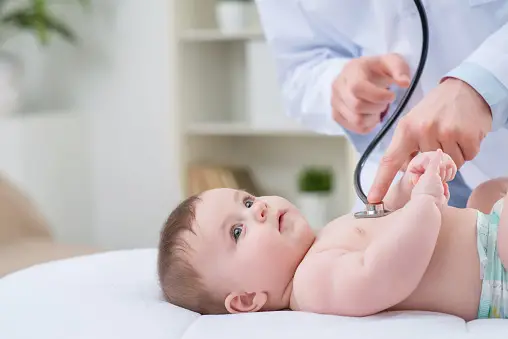
Whereas drooling is a traditional a part of a child’s growth, extreme drooling is usually a signal of an underlying medical situation. Listed here are some indicators which will point out it’s best to seek the advice of a health care provider:
Indicators of Dehydration
In case your child just isn’t having sufficient fluids consumption, extreme drooling could cause dehydration. In case you observe that your child’s mouth is extraordinarily dry, their urine is darkish, or they seem torpid, it’s advisable to hunt medical recommendation.
Fever
In case your child has a fever together with extreme drooling, it might be an indication of an an infection. A fever is mostly outlined as a physique temperature of 100.4 levels Fahrenheit (38 levels Celsius) or greater. In case your child has a fever, it’s best to seek the advice of a health care provider.
Problem Swallowing
In case your child is having issue swallowing, it might be an indication of an underlying situation. This may be indicated by choking or gagging when trying to eat or drink. In case you discover your child is having issue swallowing, it’s best to seek the advice of a health care provider.
Rash or Irritation Across the Mouth
Extreme drooling could cause a rash or irritation across the mouth, often called drool rash. If the rash turns into extreme or doesn’t go away, it’s best to seek the advice of a health care provider to deal with drool rash.
Extreme Drooling Past a Sure Age
Whereas drooling is frequent in infants, extreme drooling past a sure age could also be an indication of an underlying situation. In case your child is older than six months and nonetheless excessively drooling, it’s best to seek the advice of a health care provider.
Basically, if you’re involved about your child’s extreme drooling, it’s at all times greatest to seek the advice of a health care provider. They can assist decide if there may be an underlying situation that must be addressed.
Ideas for Managing Child Slobber
Infants drool quite a bit, and managing their slobber is usually a problem for fogeys. Listed here are some ideas that will help you handle your child’s drooling:
Preserve your child’s pores and skin clear and dry
Wipe your child’s face and neck ceaselessly, particularly after feedings. Use a delicate, light fabric to keep away from irritating your child’s delicate pores and skin. You can even use a bib to catch the drool and maintain your child’s garments dry.
Use a moisture barrier ointment
Earlier than bedtime, apply a moisture barrier ointment round your child’s mouth and cheeks to forestall drool from getting involved with their pores and skin. Your pediatrician can information you to the lotions which can be greatest to your drooling child, relying on their age.
Present your child with protected teething toys
Teething is without doubt one of the major explanation why infants drool excessively. Offering your child with protected teething toys to chew on can assist soothe their gums and cut back drooling.
Preserve your child’s bedding dry
Infants drool at evening as effectively, and moist bedding could cause discomfort and pores and skin irritation. Use a water-proof mattress pad and alter your child’s bedding ceaselessly to maintain them dry and comfy.
Be aware of your child’s clothes
Select clothes that’s straightforward to alter and clear, and keep away from clothes with tight collars or that may irritate your child’s pores and skin. You can even use a bib to guard your child’s clothes from drool.
By following the following pointers, dad and mom can handle their child’s drool and maintain them snug and glad.
Conclusion
In conclusion, drooling is a traditional a part of a child’s development and growth. Infants drool whereas exploring and taking in most of their wants by means of the mouth. It aids within the breakdown of meals earlier than it reaches the abdomen, and saliva breaks down micro organism and washes the mouth, stopping infants from getting sick.
Extreme drooling in infants and toddlers will be attributable to teething, developmental phases, and hypersalivation. You will need to maintain the newborn clear and dry to keep away from pores and skin irritation and an infection. A bib can be utilized to soak up the drool and defend the newborn’s clothes.
Dad and mom also can encourage their infants to chew on teething toys or clear, chilly objects to assuage their gums. If the drooling is an excessive amount of or accompanied by different signs comparable to fever or rash, dad and mom ought to seek the advice of a pediatrician to rule out any underlying medical circumstances.
In abstract, drooling is a pure and needed course of for infants. Dad and mom can take steps to handle extreme drooling and supply consolation throughout teething phases.
